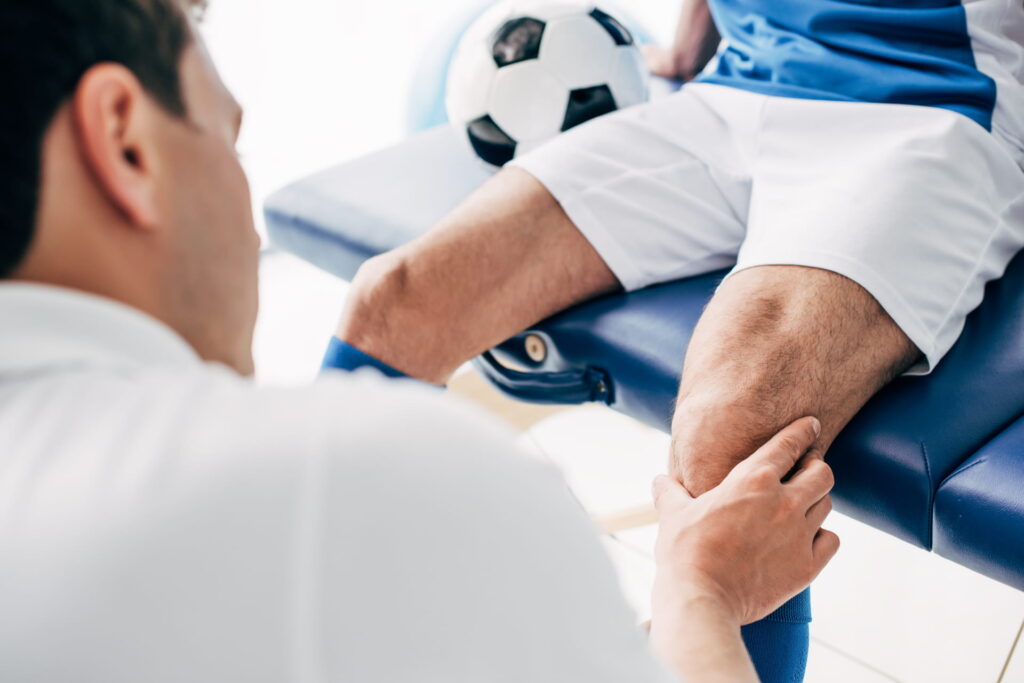Sports medicine stands at the crossroads of healthcare and physical activity, offering crucial insights and interventions for those engaged in sports and exercise. This specialized field not only addresses sports-related injuries but also focuses on prevention, diagnosis, rehabilitation, and performance enhancement. Coaches, athletes, and fitness enthusiasts rely on sports medicine professionals to maintain peak physical condition and recover from injuries. This article delves into the essential aspects of sports medicine, shedding light on its significance for sports coaches.
The Role of Sports Medicine in Athletic Performance
Sports medicine professionals work tirelessly to optimize athletes’ health and performance. Their expertise spans injury prevention, efficient training methods, and the management of acute and chronic conditions. By leveraging the latest research and techniques, they ensure athletes can perform at their best, safely and sustainably.
Injury Prevention Strategies in Sports
Injury prevention is a cornerstone of sports medicine, aiming to minimize the risk of sports-related injuries. Effective strategies include proper warm-up routines, strength and conditioning programs, and education on safe practice techniques. These preventive measures are supported by evidence from reputable sources, emphasizing their importance in maintaining athlete health and longevity.
For instance, the Centers for Disease Control and Prevention (CDC) highlights the effectiveness of conditioning programs in reducing sports injuries CDC.

Diagnosing and Treating Sports Injuries
When injuries occur, accurate diagnosis and timely treatment are paramount. Sports medicine practitioners employ a range of diagnostic tools and treatments, from physical examinations to advanced imaging techniques and physiotherapy. These approaches facilitate a swift return to activity while ensuring the athlete’s long-term well-being.
Research published in the American Journal of Sports Medicine underscores the value of prompt and appropriate treatment for sports injuries, linking it to better outcomes and faster recovery times American Journal of Sports Medicine.
Rehabilitation and Return to Play
Rehabilitation is a critical phase in the recovery process, tailored to each athlete’s specific needs. Sports medicine professionals design rehabilitation programs that address strength, flexibility, and proprioception, guiding athletes through recovery to safely return to their sport. The goal is not just to heal the injury but to prevent its recurrence.
The National Institutes of Health (NIH) offers insights into effective rehabilitation practices, emphasizing their role in successful return-to-play outcomes NIH.
Enhancing Athletic Performance Through Sports Medicine
Beyond injury management, sports medicine focuses on performance enhancement. Nutrition, psychology, and biomechanics are among the areas explored to boost athletic performance. Tailored training programs and nutritional plans, grounded in scientific research, help athletes surpass their limits and achieve new personal bests.
The importance of a multidisciplinary approach to performance enhancement is highlighted in studies available through the National Library of Medicine National Library of Medicine.

Key Takeaways on Understanding Sports Medicine
Sports medicine is an integral part of the athletic world, addressing every aspect of an athlete’s health and performance. From preventing injuries to enhancing performance, the contributions of this field are invaluable to sports coaches and their teams. The multidisciplinary approach of sports medicine ensures comprehensive care, fostering an environment where athletes can thrive.
In-Depth Analysis
The intersection of healthcare and physical activity, sports medicine plays a pivotal role in the modern athletic landscape. Its contributions to injury prevention, rehabilitation, and performance enhancement cannot be overstated. By staying informed on the latest developments in sports medicine, coaches can significantly impact their athletes’ health, longevity, and success.
Research from the American College of Sports Medicine (ACSM) provides extensive resources on the benefits of sports medicine, reinforcing its significance in promoting athlete health and performance ACSM.
Frequently Asked Questions
- What is sports medicine? Sports medicine is a field of healthcare that focuses on preventing, diagnosing, treating, and rehabilitating sports-related injuries, as well as enhancing athletic performance.
- How can sports medicine prevent injuries? Injury prevention in sports medicine involves a combination of strength and conditioning programs, proper warm-ups, and education on safe practice techniques to minimize the risk of injuries.
- What are common treatments in sports medicine? Common treatments include physical therapy, medication, surgery for severe injuries, and personalized rehabilitation programs aimed at a full and efficient recovery.
- How does sports medicine enhance athletic performance? Sports medicine enhances performance through nutritional guidance, psychological support, and biomechanics analysis, among other strategies, to improve overall health and athletic capability.
- Why is rehabilitation important in sports medicine? Rehabilitation is crucial for recovering from injuries, regaining strength and mobility, and preventing future injuries. It ensures athletes can safely return to their sport at their peak performance level.

